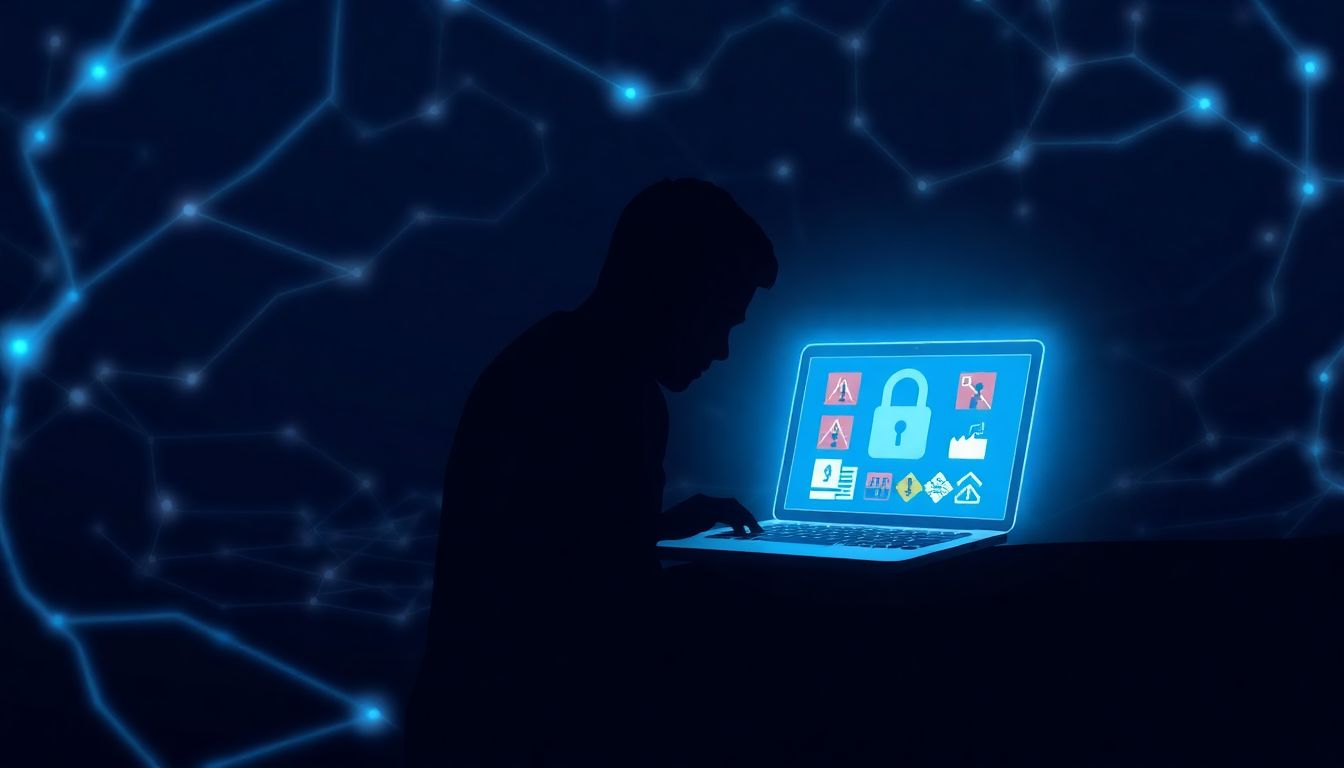
The internet poses risks as cybercriminals target users. Learn about common scams and how VPNs can protect your personal information.
The Growing Threat of Online Crime
The Rise of Cybercrime Statistics
Cybercrime is rising. For example, in 2021, phishing attacks made up over 80% of security incidents. Furthermore, data breaches affected more than 50% of Americans in the past five years. As a result, these statistics highlight the need to safeguard your online presence.
These alarming numbers emphasize the need for robust online protection. For further insights, visit FBI Internet Crime Reports.
Real-World Examples of Online Scams
One common scam is phishing. For instance, you might receive an email that appears to be from your bank, urging you to click a link to verify your account. As a result, if you do, you may unknowingly give your details to fraudsters.
Another example is fake websites. These mimic legitimate businesses and often offer great deals. Consequently, once you enter your information, it’s captured by criminals. Therefore, always check for proper URLs and secure connections to avoid this trap.
The Importance of Online Security
With increased risks, understanding online security is essential. For instance, it’s not just about avoiding scams; it’s also about protecting your personal and financial information.
Understanding Common Online Scams
Phishing: The Art of Deception
Phishing is a tactic used by criminals to deceive people. For example, they send emails or messages designed to look real, thereby tricking you into providing personal information. For example, they may impersonate a trusted company, asking for your login credentials or financial details.
Some notable phishing scams include:
- Emails claiming to be from major retailers offering fake discounts.
- Messages purporting to be from tech support asking you to call a number for updates.
Learn more at Anti-Phishing Working Group.
Fake Websites and Malicious Software
Fake websites can look almost identical to real ones. In fact, they operate by tricking users into entering their details. As a result, it’s crucial to be aware of red flags, such as:
- Misspelled URLs or logos.
- Lack of contact information.
- Absence of HTTPS in the web address.
Identity Theft: The Ultimate Online Crime
Identity theft can lead to severe consequences, including financial loss and damaged credit scores. Moreover, it can result in long-term emotional distress and a prolonged recovery process. Furthermore, criminals often use stolen personal information to open accounts in your name, thus compounding the harm.
Common methods of identity theft include:
- Hacking social media accounts.
- Stealing mail containing personal info.
How VPNs Work: Encryption and Security
VPN Encryption: Your Data’s Shield
VPN stands for Virtual Private Network. Essentially, it creates a secure connection, encrypting your data. Furthermore, VPNs use protocols like OpenVPN to ensure your information is protected from prying eyes. As a result, even if someone intercepts your data, they won’t be able to read it.
Explore trusted VPN options at VPN Comparison Sites.
VPNs and IP Masking: Hiding Your Identity
When you browse the internet, your IP address reveals your location. VPNs mask your IP address, making it harder for others to track your online activity. As a result, this added layer of anonymity helps protect you from potential threats.
Choosing a Reliable VPN Provider
Not all VPNs are created equal. Look for providers with:
- A strict no-logs policy.
- Robust security features.
- Good connection speeds.
VPNs and Public Wi-Fi: A Powerful Combination
Public Wi-Fi Risks and Vulnerabilities
Public Wi-Fi networks, like those in cafes and airports, can be risky. In fact, hackers may set up fake networks, waiting for unsuspecting users to connect. Consequently, without proper protection, these networks can expose your sensitive information.
Using a VPN on Public Wi-Fi: Enhanced Security
Connecting to a VPN on public Wi-Fi encrypts your data, shielding it from hackers. This is especially crucial when accessing bank accounts or personal information in public places.
Best Practices for Public Wi-Fi Safety
To stay safe while using public Wi-Fi:
- Avoid accessing sensitive sites without a VPN.
- Use strong, unique passwords.
- Disable file sharing and use firewalls.
Beyond VPNs: Essential Online Security Measures
Password Management and Security
Strong passwords are vital. For this reason, use a mix of letters, numbers, and symbols. Additionally, consider using a password manager to track and generate secure passwords.
Software Updates and Security Patches
Regularly updating software protects against vulnerabilities. In addition, operating systems and applications often release patches to fix security holes. Therefore, timely updates help ensure you remain secure.
Educating Yourself About Online Threats
Awareness is your best defense. In fact, learning about online threats and scams is crucial. Additionally, resources like cybersecurity websites and online courses offer valuable information.
Conclusion: Securing Your Digital Life
Key Takeaways: Protecting Yourself Online
Staying safe online requires a proactive approach. Understanding common scams and using tools like VPNs are essential steps. Moreover, take action today to secure your digital life and protect your personal information from potential threats.
Be sure to check out my other posts to learn more about staying safe online and other helpful topics!